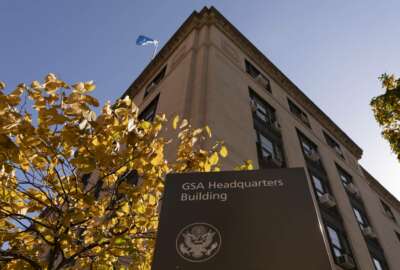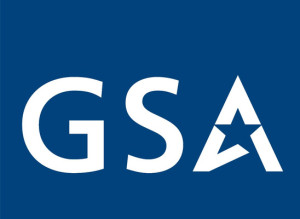
GSA leadership, IG continue to butt heads over schedule price reasonableness
The General Services Administration’s inspector general released its third report or alert over the last year about the data behind the Transactional Data...
The long-standing debate over whether prices on the General Services Administration Schedule contract are “fair and reasonable” reached a new level of discord.
GSA’s inspector general makes what some may say are a shocking series of recommendations about schedule prices in a new report. Auditors told GSA to cancel the six-year-old Transactional Data Reporting (TDR) program. The IG also told GSA to tell its agency customers to make their own price reasonableness determinations because they cannot trust that they are getting the lowest prices through the schedule.
And GSA’s Federal Acquisition Service responds with contempt for those suggestions, calling TDR valuable, schedule prices more than reasonable and compliant with the Federal Acquisition Streamlining Act and the Competition in Contracting Act (CICA).
The latest episode in this long-running squabble over schedule prices is an unfortunate and predictable escalation.
Industry experts called the IG’s report more than just another shot across the TDR bow, but an attempt to sink the ship.
“The OIG recommending that agencies should perform independent price determinations feels like a significant escalation in the battle between GSA OIG and GSA over the effectiveness of TDR,” said Leo Alvarez, a principal in the government contractor solutions practice of Baker Tilly, in an email to Federal News Network. “In essence, the OIG is saying they have lost confidence in the GSA schedules program to achieve reasonable prices. A proverbial ‘buyer beware’ sign is on the program.”
Alan Chvotkin, a partner with the law firm Nichols Liu, said the IG has never liked the TDR program since its inception.
“The GSA IG opposed the TDR pilot from the outset because both the commercial services practices (CSP) and the price reduction clause (PRC) would be/are inapplicable to firms participating in the TDR pilot,” Chvotkin said in an email. “The IG has also opposed almost every effort to adjust or eliminate the CSP and the PRC, such as recommended by the GSA MAS Advisory Panel. I served on that panel and supported the recommendation to eliminate the CSP and the PRC under certain circumstances. Yet both of these elements have been consistently identified by ‘commercial item’ providers as barriers to their willingness to participate in GSA’s schedules market.”
Part of the reason the IG has been against TDR and for keeping the PRC has to do with its ability to recoup alleged overcharges or mischarges.
No good way to check prices?
While the IG may like the PRC over TDR, this latest report finds that both approaches are deficient.
“When performing price analyses on TDR pilot contracts, FAS contracting personnel do not have access to TDR data that can be used for pricing decisions and as a result, they mainly compared proposed pricing to other MAS and government contracts,” the IG stated. “However, this approach does not provide customer agencies with assurance that FAS achieved pricing that reflects the offerors’ best pricing and will result in the lowest overall cost alternative to meet the government’s needs.”
The IG also heard from contracting officers; 7 out of 11 expressed concerns about TDR’s value.
“We sampled eight contracts under the TDR pilot with an estimated total value of $2.5 billion and found that TDR data was not analyzed for any of the sampled contracts,” the IG stated. “Accordingly, FAS contracting personnel followed the guidance as outlined in [2016] and relied on the pricing tools to evaluate the relative competitiveness of the proposed pricing.”
As for using the price reduction clause, the IG found “FAS contracting personnel frequently accepted commercial pricing information from offerors that was unsupported, outdated or that identified no comparable commercial sales. As a result, FAS cannot provide customer agencies with assurance that MAS contract pricing will result in the lowest overall cost alternative to meet the government’s needs.”
The IG’s analysis went one step further, looking at 20 recent MAS contract and option awards and found contracting officers’ price analyses couldn’t provide customer agencies with assurance that orders placed against MAS contracts will result in the lowest overall cost alternative.
Trust in schedules returned
This was part of the reason the IG recommended GSA tell its agency customers to conduct their own price reasonableness determination.
Trust in GSA schedule prices hit an all-time low in 2014 when the Defense Department, which is the largest customer of the program, and NASA issued deviations to the Federal Acquisition Regulations telling contracting officers to do their own price reasonableness determinations.
But since then, GSA made changes that reestablished faith in the schedules prices. In 2018, the Naval Postgraduate School and the Coalition for Government Procurement looked at prices on GSA Advantage and found they were better than commercial offerings by more than 50%.
GSA cited the Naval Postgraduate School analysis in its response to the IG, and the IG responded by throwing the study’s conclusion back in the agency’s face: “While the study found that, in some cases, GSA Advantage! pricing was better than Amazon Business, the study did not recommend using GSA Advantage! due to minimum order requirements and instead found that Amazon Business was a viable option for purchases below the micro-purchase threshold, currently at $10,000.”
Baker Tilly’s Alvarez said what seems to be the issue at hand is the long-time battle between best value and lowest price.
The IG seems to believe GSA must always achieve lowest price, while the federal acquisition community over the last 25 years has preached best value.
“In their view the program, under TDR, fails to fulfill the requirements of CICA as it does not result in the ‘lowest overall cost alternative’ to the government,” Alvarez said. “I think that highlights something more fundamental about how GSA OIG and GSA perceive the Schedules program. The concept of ‘best value’ has long been a bedrock principle of the program. In fact, at industry meetings where the TDR program was being proposed and ultimately rolled out, GSA officials stated on a number of occasions that the data would not be used to facilitate a race to the bottom on prices. Yet cost appears to be the overwhelming focus of the OIG’s audit report.”
He added while focusing on low prices for products may be easy, it’s not the case for services. And agencies are spending more on services every year, reaching more than $380 billion out of $637 billion in fiscal 2021.
“Pricing evaluations for services at the MAS contract level have always presented a challenge, and it remains unclear how GSA will effectively determine price reasonableness and best value for services contractors under TDR,” he said. “With services representing the majority of sales under the GSA MAS program, it will be interesting to see if GSA MAS contracting officers working with contractors under TDR continue to rely on the previously mentioned pricing tools, more frequently request additional supporting information, use other methods or simply struggle with drawing conclusions about price reasonableness.”
TDR expansion coming
It’s clear the IG’s criticisms aren’t having an effect on GSA’s plans to expand TDR.
Sonny Hashmi, the commissioner of the Federal Acquisition Service, said while he appreciates the IG’s input and suggestions, TDR is valuable and GSA plans to expand it.
“The future of how we buy in government is going to require real time data, and the price reduction clause, which served a particular purpose a decade ago, two decades ago, isn’t good enough. We have to rethink how we have we buy products and services in government. And programs like the TDR are the way forward,” Hashmi said in an interview with Federal News Network after the IT Modernization Summit sponsored by FCW. “Our current focus right now is to make sure that the quality and complete centric completeness of data continues to go up. We’ve made significant progress this year and we want to continue to make that progress. We’re continuing to integrate that data into the analysis tools that our contracting officers use every day when we’re doing fair price analyses.”
Hashmi said TDR has proven its value through initiatives like category management, through the pandemic and through hurricane responses.
While Hashmi wouldn’t offer details or a timeline about how GSA is expanding TDR, the IG report says the agency plans to move it out of the pilot phase and expand it across all schedule contracts starting Nov. 1.
“The goal though is to move to a regime over time that leverages transactional data rather than relying on clauses for price or product price assurances. We want to get we want to do that when we’re all comfortable. It’s the right time to do one of the big pushes,” he said.
Alan Thomas, the former FAS commissioner at GSA and now chief operating officer at IntelliBridge, said the IG report actually gives the agency the opportunity to rethink this entire process.
“TDR upends that model and requires the IG to change while continuing to provide important oversight of Contracting Officers’ work. This isn’t easy, but I think the report offers a pathway to a new normal. Doing so will require leadership buy-in from FAS and the IG,” he said. “The expanded use of additional data and analytic techniques to get the best value for government buyers is an area for collaboration between FAS and IG’s audit team. With the right leadership support, this latest report could be the catalyst for putting the best minds from FAS and the IG together on this topic?”
The question is can the IG and FAS leadership put away years of acrimony to come together on this important topic? It’s clear that GSA isn’t canceling TDR or telling its customers that schedule prices are not fair and reasonable. And it’s clear the IG will continue to say schedule prices are problematic.
Copyright © 2025 Federal News Network. All rights reserved. This website is not intended for users located within the European Economic Area.
Jason Miller is executive editor of Federal News Network and directs news coverage on the people, policy and programs of the federal government.
Follow @jmillerWFED
Related Stories







